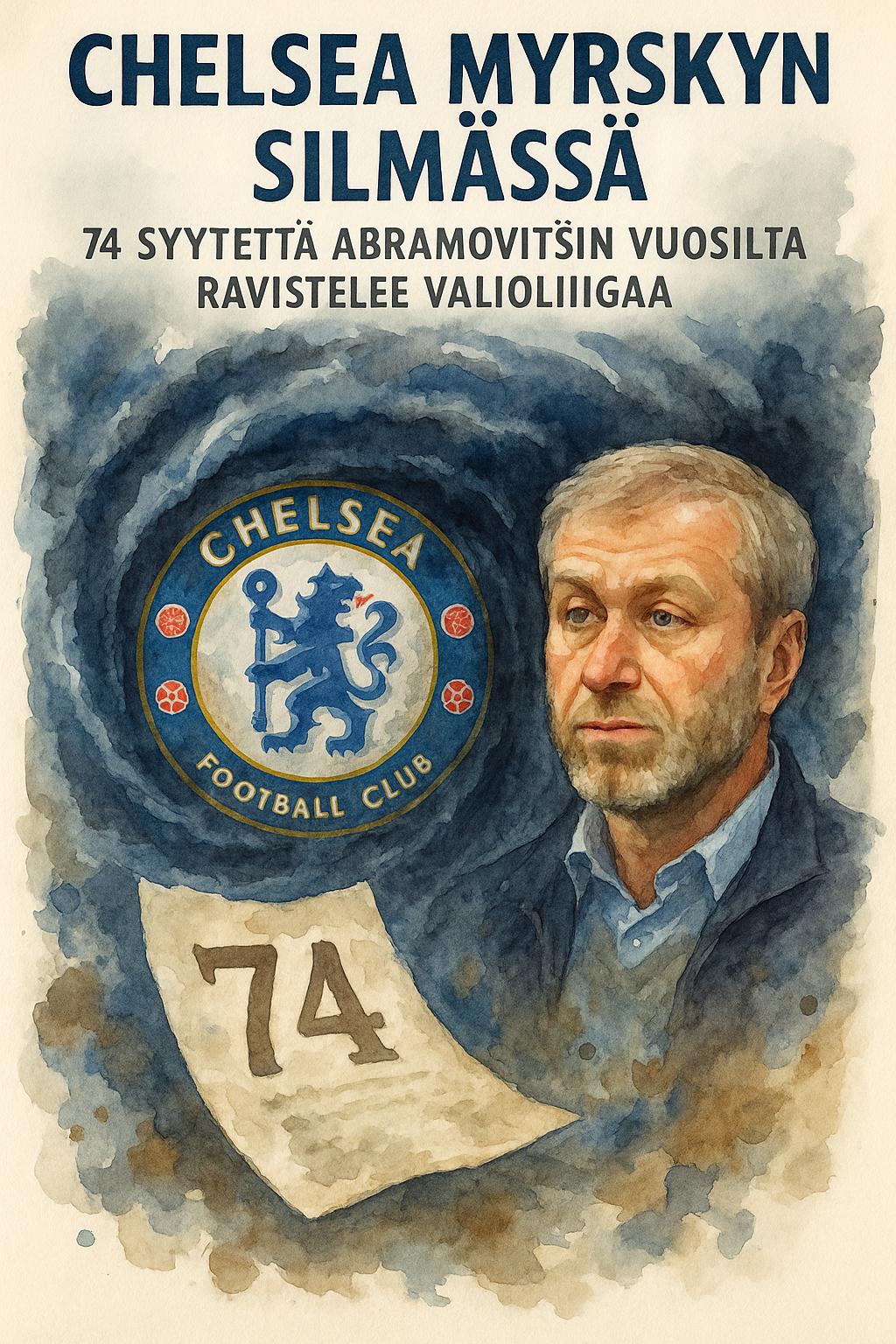Chelsea myrskyn silmässä 74 syytettä Abramovitšin vuosilta ravistelee Valioliigaa
For over a decade, Chelsea built its name on silverware, flair, and the unmistakable mark of Roman Abramovich’s billions. But now, the glow of Champions League nights and Premier League triumphs is being overshadowed by a storm of accusations: the club is facing 74 alleged rule breaches spanning from 2009 to 2022, the years under Abramovich’s ownership.
These aren’t small infractions. According to the Football Association (FA), we’re talking about questionable agent deals, shadowy intermediaries, and complex investment schemes involving third parties. Put simply: behind Chelsea’s glittering success may have been a system that bent—or broke—the rulebook.
What exactly is Chelsea accused of?
Investigators are especially concerned about the seasons around 2010–2011 and 2015–2016. That’s when agent agreements are thought to have gone against regulations, with some commercial arrangements potentially clashing with both Premier League and FIFA rules.
This isn’t the first time the club’s transfer dealings have been dragged into the spotlight. Back in 2019, Chelsea was hit with a transfer ban for breaching rules on signing underage players. In that sense, this latest saga feels like part of a longer-running story.
Chelsea’s response: “We came forward ourselves”
Fast-forward to 2022: Abramovich, facing UK sanctions after Russia’s invasion of Ukraine, was forced to sell the club. His buyer? Todd Boehly’s American-led consortium, now tasked with steadying one of football’s most turbulent ships.
The new owners stress that the concerns came to light during the sale process. In fact, they say the club itself brought them to the FA’s attention, signaling their willingness to cooperate and resolve things openly. It’s a crucial detail: Chelsea is eager to position itself as transparent, not deceptive.
What punishment could be coming?
The potential consequences are heavy, and the FA has several tools at its disposal:
- Massive fines – English football has a track record of handing down big financial sanctions.
- Points deductions – this could directly damage Chelsea’s Premier League campaign.
- Transfer bans – cutting the club off from fresh talent has been used before as a powerful deterrent.
We’ve already seen the seriousness of such measures: Everton lost points for breaching financial rules just last season. If Chelsea’s charges are upheld, the punishments could be even more severe.
Abramovich’s shadow still lingers
Roman Abramovich didn’t just buy a football club; he transformed its identity. With him came unprecedented wealth, elevating Chelsea into Europe’s elite. Fans will never forget the peaks: triumphant penalty shootouts, European nights, and an avalanche of trophies.
But history now comes with a harsher lens. Abramovich’s tenure is increasingly tied to controversial financial dealings, political connections, and allegations that some of Chelsea’s ascent was powered by arrangements that didn’t respect the rules. It’s a bitter irony — while Chelsea dominated the field, off it there may have been a hidden cost.
What happens next?
Chelsea has until next Friday to submit a written response. After that, the investigation will begin—months of combing through paperwork, testimonies, and historical deals. The timing is telling: football authorities are moving toward stricter oversight, spurred on by headline cases like Manchester City’s 100+ charges.
This era could go down as the decade when England’s football giants found themselves under the microscope like never before.
The bigger picture
- Chelsea faces 74 alleged breaches between 2009–2022.
- Focus areas: improper agent relationships and third-party investments.
- The legacy stems from Abramovich’s reign, but it’s the new owners who must manage the fallout.
- Punishments could include fines, point deductions, or transfer bans.
- The case underscores a wider push for financial integrity in football.
⚽ Over to you: If the charges prove true, what would be a fair punishment? Should Chelsea be hit with heavy fines, points deductions, or both? More importantly—can the Premier League maintain its reputation if its biggest clubs keep being pulled into scandal?
